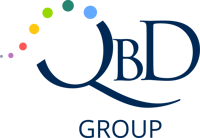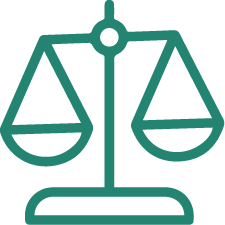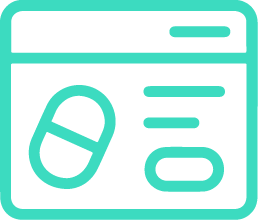What do you do when a healthcare professional emails your company about off-label use
- Or when a patient wants clarity on a side effect they’ve experienced?
- Or when a patient isn’t sure how to operate their medical device?
- Or when a patient forgets a dose and needs guidance?
- Or when a pharmacist runs into problems with the storage and stability of your product?
These aren’t just routine inquiries — they’re Medical Information Requests (or Medical Enquiries), and the way you handle them can shape everything from your compliance status to brand trust.
In today’s highly regulated pharmaceutical environment, every request is a moment of truth. They test not only your scientific credibility, but also your ability to respond clearly, compassionately, and in full compliance with national and European regulations.
In this post, we’ll walk you through the lifecycle of a medical enquiry, highlight the skills and systems you need to manage them effectively, and show how a simple question can evolve into a critical regulatory touchpoint.
What are Medical Information Requests (Medical Enquiries)?
A Medical Information Request—also known as a Medical Enquiry—is a spontaneous question or request for scientific information about a company’s medicinal products or related therapeutic areas. These requests can be submitted by:
- Healthcare professionals
- Patients
- Consumers
- The general public
- Healthcare organizations
- Other stakeholders
They may cover topics from dosage and drug–drug interactions to use in special populations, off-label questions, device operation, storage and stability, or side-effect clarifications, and can arrive via email, phone, medical representatives, or digital platforms.
These activities fall under the responsibility of a company’s scientific services or its marketing authorization holder and must comply with:
- EU Directive 2001/83/EC (as amended)
- Applicable national laws (e.g., Spain’s Law 29/2006; Royal Decree 1345/2007)
- Promotion-related safeguards (e.g., Royal Decree 1416/1992; local circulars such as Pharmacy Circular No. 1/2000 in Madrid)
- Industry codes and guidelines (e.g., EFPIA Code of Practice)
The guiding principles? Responses must be scientifically accurate, objective, and non-promotional, and — importantly — tailored in tone and level of detail to the recipient, always prioritizing patient safety and healthcare professional autonomy.
Why medical enquiries deserve strategic focus
While responding to medical enquiries is a regulatory requirement, it’s also a unique opportunity to showcase your company’s deep therapeutic expertise and strengthen your brand as a scientifically responsible partner. Done well, this process can:
- Demonstrate deep knowledge and expertise in the relevant therapeutic area
- Reinforce trust among healthcare professionals and patients by providing clear, tailored guidance
- Support clinicians in their day-to-day practice with balanced, evidence-based information
- Empower patients to use your products safely and effectively
- Highlight regulatory competence through consistent, compliant processes
In short: it’s not just about compliance. It’s about credibility, expertise, and real-world impact.
Regulatory landscape: turning compliance into clarity
You know that medical enquiries fall under your scientific services and are governed by a patchwork of EU and local laws. But how can you use that framework to your advantage?
- EU Directive 2001/83/EC mandates a dedicated scientific service for product-related information at the European level.
- National laws (e.g., Spain’s Guarantee Law 29/2006; Royal Decree 1345/2007) and promotion-related safeguards (e.g., Royal Decree 1416/1992) layer on requirements for non-promotional, science-based communication.
- Industry codes (for instance, the EFPIA Code of Practice) further guide tone and transparency.
Rather than seeing these rules as restrictions, the most successful companies leverage them to build consistent, credible processes—from triage and evidence review to documentation and follow-up—ensuring every response is scientifically accurate, objective, and tailored in tone and depth to the recipient.
A well-understood regulatory foundation not only satisfies auditors but also fosters internal clarity, external trust, and reinforces your role as a true scientific partner to healthcare professionals and patients alike.
The medical enquiry lifecycle: from question to confidence
Let’s look at the typical journey of a medical enquiry and what it takes to respond appropriately at each stage.
1. Submission & triage
Requests are received through various channels—contact centers, field reps, websites—and must be classified correctly. A crucial first step is distinguishing the type of requester (HCP, patient, other) and the nature of the question (on-label, off-label, urgent, etc.).
Correct triage ensures that requests are handled efficiently and routed to the right experts, minimizing delays and regulatory risk.
2. Research & information gathering
The medical information team collects data to craft an accurate response.
- For patients, responses are based on the SmPC (Summary of Product Characteristics) and patient leaflet.
- For HCPs, information may extend beyond the label, based on peer-reviewed literature and clinical data.
This may involve:
- Bibliographic searches in scientific databases (e.g. PubMed, Embase)
- Use of keywords, MeSH terms, Boolean operators
- Critical reading of primary sources to extract relevant, balanced data
Tailoring responses to the audience while maintaining scientific integrity is essential for compliance and impact.
3. Internal review & approval
Draft responses undergo review by cross-functional stakeholders—medical, legal, and regulatory—to ensure scientific objectivity, policy compliance, and legal soundness. Comprehensive audit trails are maintained for inspection readiness.
Robust internal oversight provides full traceability and safeguards against risks of non-compliant promotional messaging, reinforcing both regulatory integrity and brand credibility.
4. Response delivery & feedback
The final response is sent in a clear, well-referenced format appropriate for the requester. Many companies also include a feedback loop to assess satisfaction and improve the process.
A professional, audience-appropriate response enhances credibility, and every interaction is a chance to learn and improve.
Building a world-class medical information team
Delivering top-notch medical information requires more than subject-matter knowledge; it demands a blend of specialized skills and competencies:
- Deep Therapeutic & Industry Expertise: Team members must understand the nuances of the therapeutic-area landscape, product portfolios, and the broader pharmaceutical environment — anticipating laboratory and clinical practice needs.
- Advanced Literature-Search Mastery: Proficiency with key scientific databases (PubMed, Cochrane Library, Embase) and search tools — MeSH terms, subheadings, Boolean operators, and database algorithms — ensures fast, comprehensive evidence retrieval.
- Critical Appraisal & Evidence Synthesis: The ability to evaluate study design, detect bias, and distill complex data underpins truly evidence-based responses.
- Strategic Communication & Stakeholder Support: Crafting scientifically accurate, audience-appropriate messages that reinforce clinical decision-making for HCPs and guide patients in safe, effective product use.
Investing in these capabilities not only elevates response quality but also builds the robust processes you need to handle complex or novel enquiries with confidence and full compliance.
High-quality medical information isn’t just expertise — it’s grounded in rigorous policy adherence and scientific integrity. By ensuring every response is accurate, reliable, and fully aligned with regulations, you reinforce your credibility and trustworthiness in the eyes of healthcare professionals, patients, regulators, and consumers.
Turning enquiries into brand-building opportunities
Medical information requests aren’t just service interactions—they’re moments to reinforce your scientific integrity and corporate reputation:
- Timeliness demonstrates commitment: Rapid turnaround times show stakeholders their concerns truly matter.
- Scientific rigor prevents bias: Delivering balanced, evidence-based information—with clear acknowledgment of both benefits and limitations—ensures accuracy and objectivity.
- Transparency builds confidence: Citing sources, methodologies, and data provenance underscores your dedication to scientific integrity.
- Consistency reflects excellence: Applying uniform processes across all enquiries highlights operational rigor, reliability, and compliance.
By viewing each enquiry as a brand engagement, you cultivate lasting trust and differentiate your organization in a competitive market.
How QbD Group can support your medical information processes
QbD Group offers end-to-end support for handling Medical Information Requests and Enquiries, ensuring every response is compliant, scientifically sound, and strategically aligned:
- Regulatory Alignment: Our processes are meticulously designed to satisfy EU and national legislation, including anti-promotion safeguards.
- Scientific Excellence: Leveraging our team of seasoned medical writers and researchers, we conduct thorough literature reviews and produce high-quality, well-referenced reports.
- Operational Efficiency: With streamlined workflows, audit-ready documentation, and real-time KPI tracking, we ensure your enquiries are handled promptly and transparently.
- Tailored Engagement: Whether your audience is patients, HCPs, or organizational stakeholders, we adapt our communication style and depth to meet their specific needs.
Ready to transform your medical enquiry process into a strategic asset?
Contact QbD Group today to discover how we can help you strengthen your Medical Information Requests and Medical Enquiries—from regulatory compliance to scientific excellence.
Contact QbD Group today to discover how we can help you strengthen your Medical Information Requests and Medical Enquiries—from regulatory compliance to scientific excellence.




















